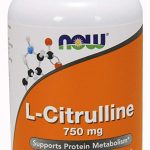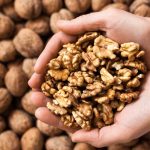Harvard university researchers have recently published a new study in the American Journal of Clinical Nutrition highlighting a connection between individuals that drink a couple of cups of coffee every day and elevated testosterone levels.

These epidemiologists also discovered that those consuming at least a couple of cups of coffee every day also had lower levels of estradiol in their body as well.
Collecting information from more than 17,880 women as well as 8840 men (all of which were participating in an already existing Nurses’ Health Study as well as a Healthcare professionals Follow Up Study), the data was pretty compelling and has already led to further tests and clinical study protocols.
Initially, researchers were only looking at the overall intake of coffee on a daily basis. Pretty quickly, however, they began to separate the data a little bit more and started to look into the impact coffee with caffeine and coffee without caffeine had on the underlying biochemistry of the human body.
Independent analysis concluded (pretty definitively) that the impact of coffee on testosterone and estradiol levels in the male and female body has very little to do with whether or not coffee is caffeinated.
Researchers now believe that the underlying factor that determines that this outcome has a lot more to do with the individual phenols contained within coffee, particularly chlorogenic acid.
Starting with the raw data, the Harvard University researchers were able to very definitively conclude that individuals consuming at least a single cup of coffee every day had dramatically different testosterone and estradiol levels in their blood compared to those that do not drink coffee on a regular basis.
The numbers here were statistically significant enough to show a very disparate impact, leading researchers to dive even deeper into the how and the why behind this impact.
Not only did the research team look at phenols like chlorogenic acid (as we touched on the moment ago), but they also looked into how coffee may impact the “good fat hormone” known as adiponectin as well as the overall inflammatory factor scientists have designated as CRP.
Individuals in this study that drank 4 cups of coffee (or more) were found to have 16.6% less CRP in their bloodstream and throughout their body as well as 9.3% more adiponectin.
As you can see, the differences and discrepancies in these percentages are anything but statistically insignificant. In fact, it’s almost impossible to imagine that these kinds of differences would be possible if coffee wasn’t playing a huge role in our biochemistry (depending on how much you consume on a daily basis).
At the end of the day, the researchers from Harvard University wrote in their study published in that journal that they are tremendously confident that “coffee consumption is closely associated with a favorable profile of overall metabolic pathways and plasma biomarkers”.
The research from this study has been so positive already that Harvard University has announced they are going to continue digging deeper into the raw data already available while at the same time working to collect even more independent research they can use moving forward.
Harvard University is pushing forward with a future set of studies, including interventional studies, that are designed to confirm the findings that have already been uncovered.
These tests and independent studies are already underway and while it may be a year or more until we see any definitive conclusion it’s exciting that researchers are committed to making sure they know exactly the kind of impact coffee has on the human body and critical hormones like the ones highlighted throughout.
Source: https://academic.oup.com/ajcn/article/109/3/635/5369497







